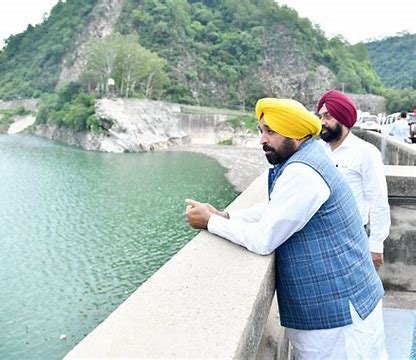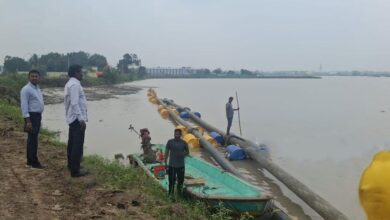
In a bold and firm statement, Punjab Chief Minister Bhagwant Mann has asserted that Punjab cannot share a single drop of water with other states. His remarks come at a time when the state is embroiled in discussions about water-sharing agreements with neighboring states. The Punjab CM’s statement is a clear declaration that Punjab’s water resources are a matter of state sovereignty and will not be compromised under any circumstances.
The issue of water sharing between states has been a longstanding point of contention in India, with several states in the Indus River Basin and Ravi-Beas Basin having competing demands for water. Punjab, with its vast agricultural sector, has long relied on the Ravi-Beas river systems for irrigation, and any potential diversion or sharing of this water has been a sensitive issue for the state.
Punjab’s Water Crisis and Its Importance
Punjab, often referred to as the “Granary of India,” depends heavily on its water resources for agriculture. The state’s economy is largely driven by its vast network of irrigation, which allows for the cultivation of wheat, rice, and other essential crops. Any reduction in water supply, especially from the Ravi-Beas system, would have a catastrophic impact on the state’s agricultural productivity and economy.
The water-sharing disputes between Punjab and its neighboring states, including Haryana and Rajasthan, have been a source of political tension for decades. These disputes stem from the allocation of river waters that were historically part of agreements made during the creation of new states in the post-independence period. While many of these agreements were meant to ensure equitable distribution, they have instead led to contentious debates over water rights, particularly when the availability of water is declining due to factors such as over-extraction, pollution, and climate change.
Chief Minister Bhagwant Mann’s Firm Stand
CM Bhagwant Mann has taken a strong stance against any agreement that would see Punjab’s water being diverted to neighboring states. His comments come in the wake of ongoing discussions regarding the implementation of water-sharing accords such as the Ravi-Beas Water Agreement and other similar deals. According to the Punjab CM, the state’s water is essential for maintaining the livelihoods of its farmers, and he has vowed to protect the state’s water rights at all costs.
In his statement, Bhagwant Mann emphasized that Punjab already faces a serious water crisis. Over-extraction of groundwater and dwindling water tables have been major concerns in the state, leading to a growing shortage of usable water for both agricultural and domestic purposes. The CM’s comments reflect the urgency with which the state is addressing these challenges and its determination to ensure that no further harm is done to its water resources.
Impact of Water Sharing Disputes on Punjab
The water-sharing dispute has had significant political and social ramifications for Punjab over the years. For decades, politicians have promised to protect Punjab’s water resources from being diverted to other states, but the issue remains unresolved. Bhagwant Mann’s government has made it clear that it will not back down on this issue, particularly given the growing demand for water in neighboring states like Haryana and Rajasthan, which are facing their own water scarcity problems.
Moreover, the water-sharing disputes have led to protests and demonstrations across Punjab, with farmers and residents expressing their concerns about the diminishing water resources and their impact on livelihoods. The CM’s stance is seen as a political move to consolidate the support of Punjab’s rural and farming communities, who are most vulnerable to the effects of any reduction in water supply.
Punjab’s Future Water Management Strategies
While Punjab’s CM has taken a hardline position on sharing water, his government is also focusing on sustainable water management strategies. The state government is exploring ways to improve water conservation, introduce rainwater harvesting systems, and promote efficient irrigation technologies to ensure that Punjab’s water resources are preserved and managed more effectively.
The Kejriwal-led AAP government in Punjab is keen on ensuring that the state does not fall further into a water crisis. As part of its water management plans, the government has already begun implementing measures to tackle water depletion, over-extraction, and pollution in rivers and groundwater sources.
Conclusion
The issue of water rights in Punjab is more than just a political matter; it is one that affects the very survival of the state’s agricultural sector and the livelihoods of its citizens. With CM Bhagwant Mann’s firm statement, it is clear that Punjab will continue to protect its water resources from any external pressures. However, as the state faces growing challenges related to water scarcity, it will also need to adopt forward-thinking strategies to preserve and manage this precious resource for future generations.










